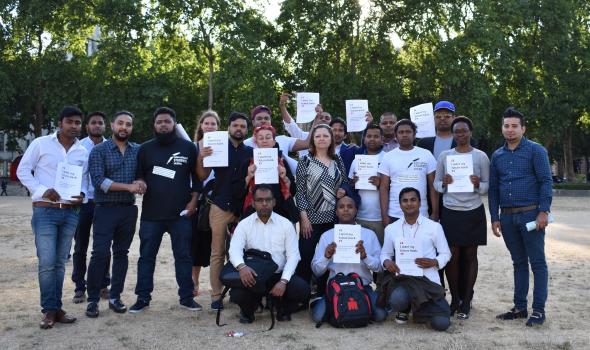I want my future back: The international students treated as guilty until proven innocent
I want my future back: The international students treated as guilty until proven innocent

This research was sparked by the demand from a group of international university students and victims of the TOEIC allegations who asked Migrant Voice for help in their fight for justice.
Read the July 2018 report here.
The Home Office had accused them of cheating in an English-language test and told them their studies had been terminated and that they had no right to stay in the United Kingdom.
Some of the students were detained, some were supported, and some returned to their home countries to appeal against the allegation, some remained to clear their names because going home with such a slur hanging over them would have destroyed their reputations and barred them from jobs – and in some cases, from their families. Their task proved virtually unattainable. They were blocked at every turn, and found that a basic tenet of British justice was turned on its head: they were presumed guilty until proved innocent, and the evidence of their innocence – the analysis of the test results – was not made available to them. Almost all their lives were thrown into turmoil. Stress, frustration and anxiety caused health problems, tens of thousands of pounds were spent on legal and living costs, families were divided, marriages were derailed.
Their desperate plight, the urgency of their situation and our own lack of funding did not allow us to conduct extensive research. Our conclusions are not based on the weight of sample size, but on a collection of significant case studies that have highlighted the disruptive impact of the government policy on every aspect of the lives of these international students, and the absence of and inconsistencies of the evidence behind the allegation of cheating.
TOP IMAGE: Affected students with Migrant staff and volunteers outside Parliament on the day of the report launch in July 2018 (Migrant Voice)


